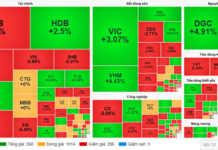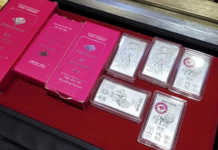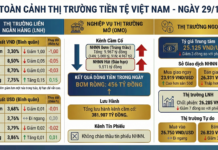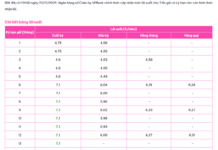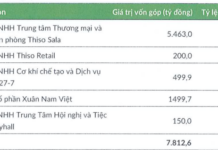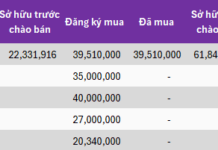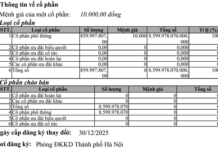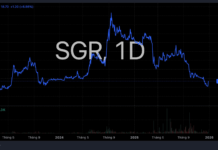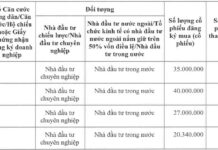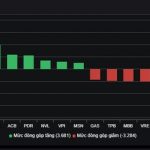In response to this question, Mr. Barry Weisblatt David, Director of Analytics at VNDIRECT Securities Company, opined that this is not a significant factor impacting the Vietnamese stock market.
VN-Index fell by ~4% on August 5th. Around the same time, the Nikkei index plunged by 12.4% – the biggest percentage drop since Black Monday in October 1987. Both incidents were triggered by news from the US. The decision by BoJ to raise interest rates is likely to have a minimal impact on Vietnam.
 Mr. Barry Weisblatt David, Director of Analytics at VNDIRECT Securities Company
|
The Yen weakened to a 38-year low of 161.99 against the USD, prompting BoJ to raise the base interest rate to approximately 0.25% to support the Yen. A stronger Yen puts pressure on the Japanese stock market as it is dominated by export-oriented businesses – unlike the Vietnamese market, which is dominated by domestic sectors such as banking, real estate, and consumer companies.
Mr. David from VNDIRECT Analytics commented that Japan’s interest rate hike has very little impact on Vietnam. Japan is only Vietnam’s sixth-largest export market. Moreover, most investments from Japan into Vietnam are in the form of development assistance (between governments) or long-term FDI. This type of capital is not sensitive to moderate currency fluctuations like ETF flows. Therefore, yesterday’s news is unlikely to cause significant changes in Japanese investment flows into Vietnam.
“I don’t think global investors will exit Vietnam and shift to Japan just for an extra 25 basis points in Yen interest rates,” said Mr. Barry Weisblatt David.
The scenario of VN-Index ending 2024 above 1,400 points remains feasible.
The VNDIRECT expert assessed that yesterday’s trading session created a good buying opportunity: “In fact, I recommended buying stocks in the afternoon session yesterday, based on our improved outlook for the market in the latter part of 2024.”
The movement of the VN-Index in the remaining months of 2024 is forecasted based on factors such as the Fed’s rate cut, the weakening of the US Dollar, Vietnam’s export growth, and credit growth.
In the base case scenario, the Fed will cut rates once this year, causing the DXY index to fall below 102. Exports are expected to grow by 10-12% this year. Credit growth will reach 14%, leading to a 18% increase in profits for listed companies. The VN-Index is projected to close at 1,350, with a trailing P/E of 14.2 times.
The profits of listed companies in the first half of the year are in line with VNDIRECT’s base case scenario. Profit growth in Q2 2024 accelerated compared to the previous quarter, reaching 15% year-on-year. Thus, the market’s profit growth is on track to meet the projected figure.
Considering the P/E ratio, yesterday’s news from the US puts upward pressure on VNDIRECT’s projection.
Following yesterday’s news about weak non-farm employment growth in the US, there is a consensus that the Fed will definitely cut rates at least once and may even cut by 50 basis points this year. This news caused the DXY index of the US Dollar to drop by 0.75% yesterday to 102.5 (VND appreciated by 0.42% to 25,100). Two rate cuts by the Fed could push the DXY index below 100.
This would give the SBV more flexibility in injecting liquidity into the market and make it easier to achieve the 14% credit growth target. In fact, the SBV has just lowered the OMO rate from 4.5% to 4.25%.
While the slowdown in US growth could put some pressure on export forecasts (as the US is Vietnam’s largest export market), this has not been observed yet. Manufacturing activity remained robust in July, with the PMI index reaching 54.7 points due to strong new orders. Overall, the positive scenario of VN-Index closing 2024 above 1,400 points, corresponding to a P/E ratio of 14.8x, is achievable.
For the remainder of 2024, Mr. Barry Weisblatt David believes that banking and steel are two sectors that investors should pay attention to.
Regarding the banking sector, while acknowledging that asset quality has deteriorated recently, Mr. David expects it to recover in the coming months as the Vietnamese economy improves. Additionally, the new real estate law will make it easier for banks to realize value from collateral. More importantly, the expected strong credit growth, exceeding the SBV’s target of 15%, will boost the sector’s income. Furthermore, a weaker USD will reduce the pressure on the State Bank of Vietnam to intervene in the currency market, thereby lowering the risk of higher interest rates, which could impact credit growth. Moreover, banks are currently trading at an attractive P/B ratio of 1.7 times, slightly below the five-year average.
In the steel industry, this industrial manufacturing sector witnessed a robust profit growth of 437.3% year-on-year in Q2 2024. Exports of steel coils and coated steel sheets increased significantly in the first half of the year, and we believe that the recovery of the Vietnamese real estate market (after the implementation of the new Land Law) will also boost domestic consumption.
Investing in a volatile market: Should beginners consider putting money into high-yield bonds for 10-30% yearly profit?
Short-term stock market trading has proven to be a risky venture for many investors, leading to substantial losses. However, there are a few select open funds that have managed to achieve impressive returns, reaching up to 30%.

